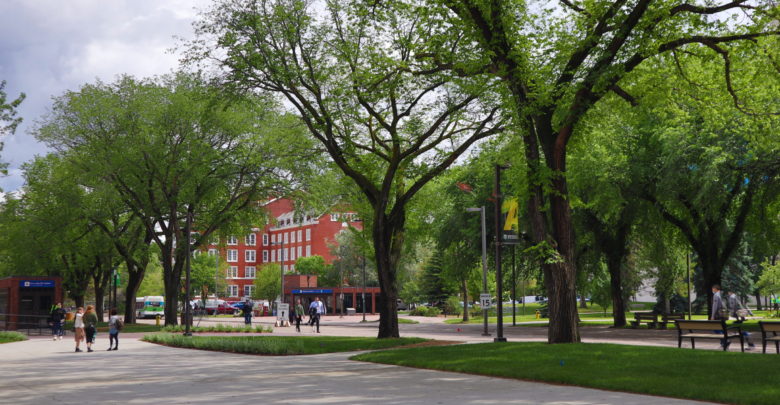Social media campaign aims to change habits around drying clothes
“We want to encourage Canadians to think of line drying their laundry as the go-to method," U of A professor says.
 Lily Polenchuk
Lily PolenchukA social media campaign led by Rachel McQueen wants to see people airing out their clean laundry. Or more precisely, convince people to give up tumble drying in favour of line drying for the month of July.
McQueen is a professor from the department of human ecology at the University of Alberta. She created the campaign largely because of environmental concerns.
“We want to encourage Canadians to think of line drying their laundry as the go-to method and the tumble dryer would be a backup option,” McQueen said.
As a researcher, McQueen is interested in how laundry practices impact the environment, such as using a tumble dryer. She mentioned that household appliances contribute to greenhouse gas (GHG) emissions. As fossil fuels are burned, their gases become trapped in the atmosphere, which contributes to global warming.
“Canadians per capita have among the highest GHG emissions in the world. In Alberta [energy use] is really important, given that most of our electricity is sourced through fossil fuels.”
McQueen mentioned how tumble-drying causes fabrics to shed small fibres into the environment. Synthetic fibres, such as polyester and acrylic, release microplastics — a very small form of plastic debris.
When comparing natural fibres such as cotton or wool to synthetic fibres, microplastics are “the worst in terms of environmental impact.”
McQueen also noted that line drying has financial benefits, such as eliminating energy costs.
Out of all household appliances, the tumble dryer “is the most energy consuming,” McQueen says
According to McQueen, tumble drying can be harsh on clothing, and can result in shrinkage. Tumble drying also significantly damages the tensile strength of clothing. As tensile strength gets worse, it affects a clothing’s life span.
“[Line drying is] a way of prolonging and extending the life of your clothes,” McQueen said. “I know a lot of people who are very driven to line dry and never use the tumble dryer because of the impact they feel it has on their clothes.”
McQueen touched on the success of other laundry campaigns that aim to change people’s routine. She mentioned the I Prefer 30 campaign in Europe and the United Kingdom (UK), which aims to convince people to wash their clothes at lower temperatures.
However, she noted that changing people’s behaviour around drying clothes may be more difficult than the I Prefer 30 campaign, due to the extra steps required for line drying.
“You put your clothes into a washing machine, you push a button, and you switch from hot water to cold water,” she said, in regards to the I Prefer 30 campaign.
“In Canada and the United States (US), the tumble dryer has become the staple of drying. Convenience is easy and soft towels feel good.”
McQueen mentioned poor air quality as a potential barrier for line drying. She referenced the several days of wildfire smoke Albertans experienced in May and June.
“When forests are burning 300 kilometres away and the smoke is coming from there … it’s not conducive to drying outside.”
Still, McQueen said there are ways of working around barriers. Alberta’s dry climate makes drying clothing inside and outside advantageous, she added.
McQueen talked about how laundering habits are learned by children largely in their home. She believes that if children grow up watching their parents line dry clothing, they’ll continue that habit into adulthood.
McQueen intends to lead another line drying campaign in February.
“I’m hoping that when we continue this in February and then again in July next year, this will become a yearly thing.”



